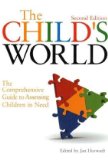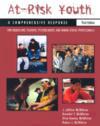4 Easy Paths To Self Improvement
By Paisley Hansen
September 27 2021 - Never changing is no way to live. The most successful people in the world are the ones who are in a constant process of evolution. Not everyone makes the choice to grow, but that's not always because they're comfortable standing still. Sometimes people just don't know where to start their journey to the future. Here are four simple ideas that anyone can use to begin figuring out their true calling in life and start growing authentically.
1. Take a Gap Year
It used to be that graduating from high school led to the immediate start of college, a career or a family for the graduate. That's no longer true, and it's not necessarily a bad thing. According to research from Bestcolleges.com, students who take a gap year are more likely to graduate in four years or less than those who don't. The reason for this is simple: self-reflection. Students who go straight from high school to college are more likely to have set in their minds what they want to study, which results in better focus when they do start their studies.
It gets better. The Gap Year Association states that 93% of students stated that their gap year helped them to learn "soft skills" like communication and group coordination. The gap year phenomenon isn't limited to students either. If you're between jobs, now might be a good time to branch out into exploring some side interests that might turn out to be real passions. A quick Google search can turn up some excellent gap year ideas, so get paper and a pencil and start brainstorming.
2. Feed Yourself Mindfully
It's often been said that we are what we eat, but science can back up that old adage with statistics. Complex carbohydrates are a healthy energy booster, especially in the morning in the form of foods like oatmeal. In fact, skipping breakfast can disrupt the body's rhythms of consumption and fasting, leading to cascade effects like lethargy. Protein fuels cellular repair and has been shown to curb appetite.
Being conscious about eating can even help boost your work productivity. Managers have their eyes on three nutrients in particular: magnesium, phenylalanine and choline. All of them have a positive impact on brain function, with magnesium (found in dark chocolate and leafy greens) being shown by some studies to cut anxiety. If you want to change your life, start with what you put in your body.
3. Learn Meditation
Meditation is another good idea that's finally getting respect from science. A few years ago, scientists at Harvard Medical School discovered something amazing: after only eight weeks of mindfulness meditation, the amygdala (the part of our brains that governs fear response) became less active. In fact, as little as ten minutes of meditation have been shown to quiet nerves and give added focus. The benefits don't end there; people with physical conditions like multiple sclerosis can see a reduction in pain after meditating. Read the official research on meditation by the National Institute of Health to start making your plan for growing in mindfulness.
4. Do Good for the World
Study after study has shown that giving back to others is objectively good for the person who does the giving. One of the greatest benefits is an increase in personal self-esteem. The reasons for this go much deeper than good vibes. Helping others in a more active way than simply giving from afar causes the same positive emotional reaction in philanthropists, even more so when they know the effects of their good deeds. That's right: The human mind is actually hardwired to reward someone for the good they do. It's not hard to see why. Everybody is connected to the rest of humanity in some measure, and when someone knows they're bettering that world in a tangible way, they realize that their own life has a purpose.
In the end, self-improvement isn't something you get from a list or a book. It's something you do for yourself, by taking a good look at what drives you as a person and then setting out on the right path for you.
Related Articles
 The Child's World: The Comprehensive Guide to Assessing Children in Need At-risk Youth: A Comprehensive Response for Counselors, Teachers, Psychologists and Human Services Professionals |